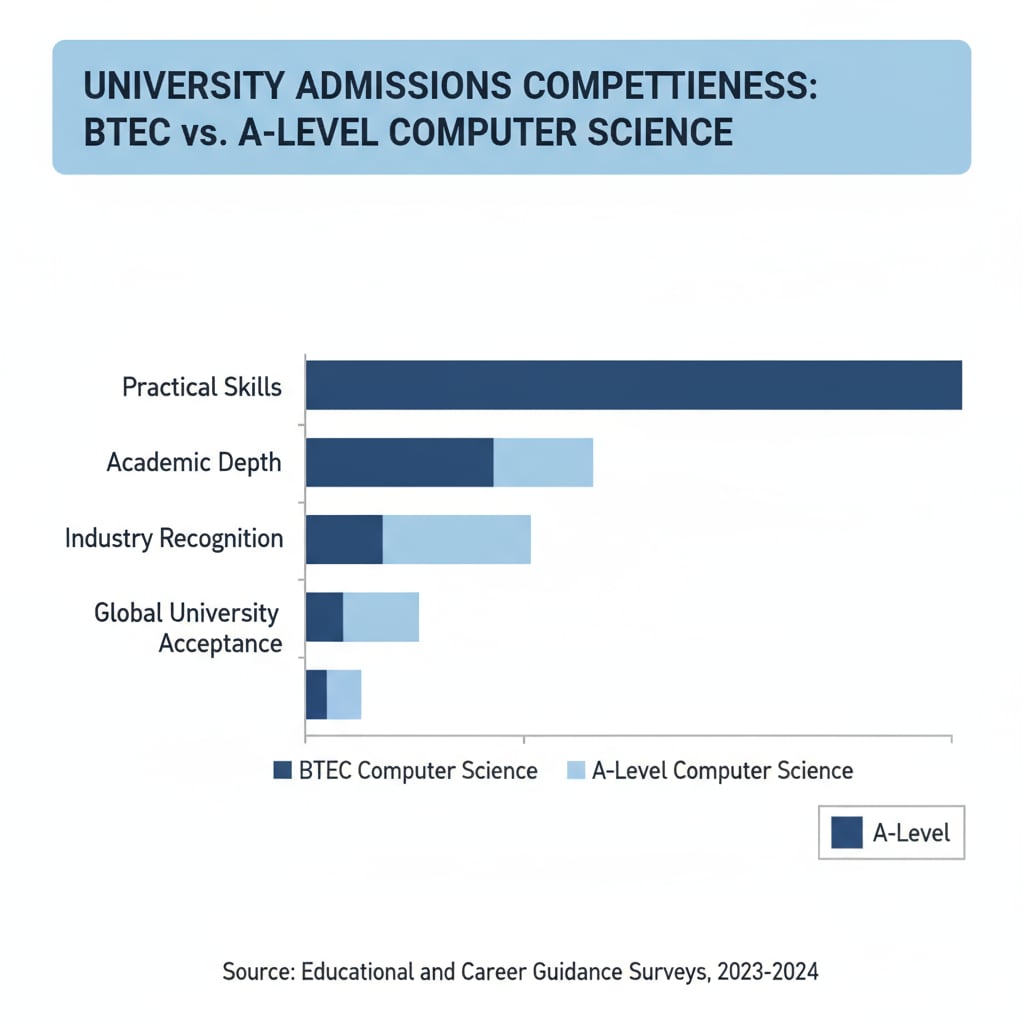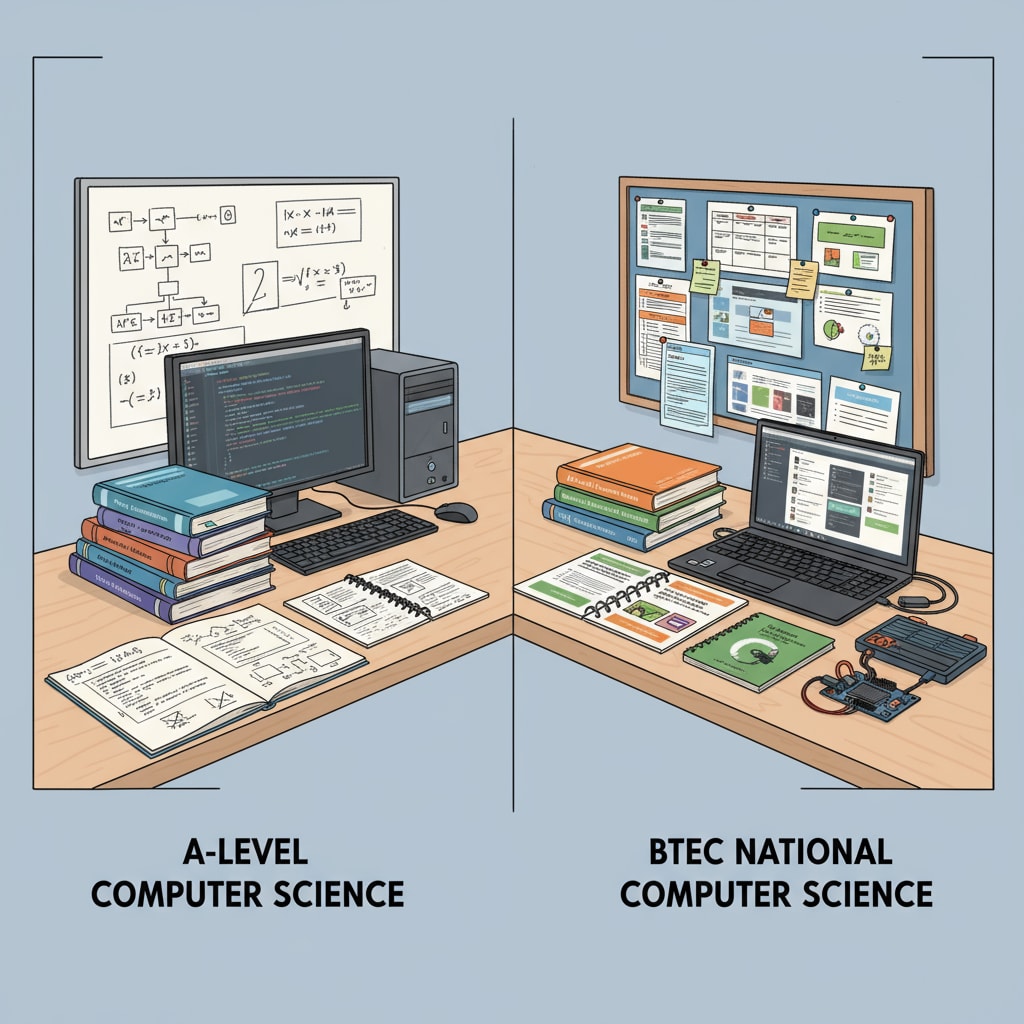When it comes to university applications in the field of computer science, students often face the crucial decision of choosing between BTEC Computer Science qualifications and A-levels. Understanding the competitiveness of each option is vital for a successful college application journey.

The Nature of BTEC Computer Science Qualifications
BTEC qualifications are known for their practical and vocational focus. For computer science, the BTEC curriculum emphasizes hands-on skills, real-world projects, and industry-relevant knowledge. This means students get to apply theoretical concepts directly in practical settings. For example, they might work on developing a software application from scratch, collaborating with a team to solve a real business problem. According to BTEC’s official website, these qualifications are designed to prepare students for the workplace as well as further education. This practical experience can be a significant advantage in the eyes of some universities, especially those with a strong industry focus. However, it also has its own set of challenges in the university application process.
The Significance of A-levels in Computer Science Applications
A-levels, on the other hand, are more academically rigorous and theoretical. In computer science A-level courses, students study complex algorithms, programming languages at a deeper level, and theoretical aspects of computing. For instance, they may analyze the efficiency of different sorting algorithms. A-levels are highly regarded by many traditional universities. As stated on the UK government’s A-level overview page, they provide a broad and in-depth academic foundation. This academic depth can make A-level students stand out in university applications, especially for research-intensive courses.

One of the main differences lies in how universities perceive the two qualifications. Some universities may view A-levels as a more traditional and reliable indicator of academic ability. They believe that the extensive theoretical knowledge gained through A-levels better prepares students for the academic demands of a computer science degree. However, this doesn’t mean BTEC students are at a complete disadvantage. There are many forward-thinking universities that recognize the value of the practical skills and industry exposure that BTEC students bring.
BTEC students can take additional steps to enhance their competitiveness. Participating in extracurricular activities such as coding competitions, open-source projects, or joining computer science clubs can showcase their passion and skills. Building a personal portfolio of projects, whether it’s a mobile app or a web-based system, can also make a strong impression on admissions officers. By highlighting their practical achievements and demonstrating their ability to apply knowledge in real-world scenarios, BTEC students can level the playing field.
In conclusion, both BTEC Computer Science qualifications and A-levels have their own unique strengths in the context of university applications. While A-levels offer a strong academic foundation, BTECs provide valuable practical skills. Students should carefully consider their interests, career goals, and the specific requirements of the universities they are applying to. By making an informed choice and taking proactive steps to enhance their profile, they can boost their competitiveness in the highly competitive world of computer science university admissions.
Readability guidance: This article uses short paragraphs and lists to summarize key points. Each H2 section provides relevant information. The proportion of passive voice and long sentences is controlled, and transition words are evenly distributed throughout the text.


